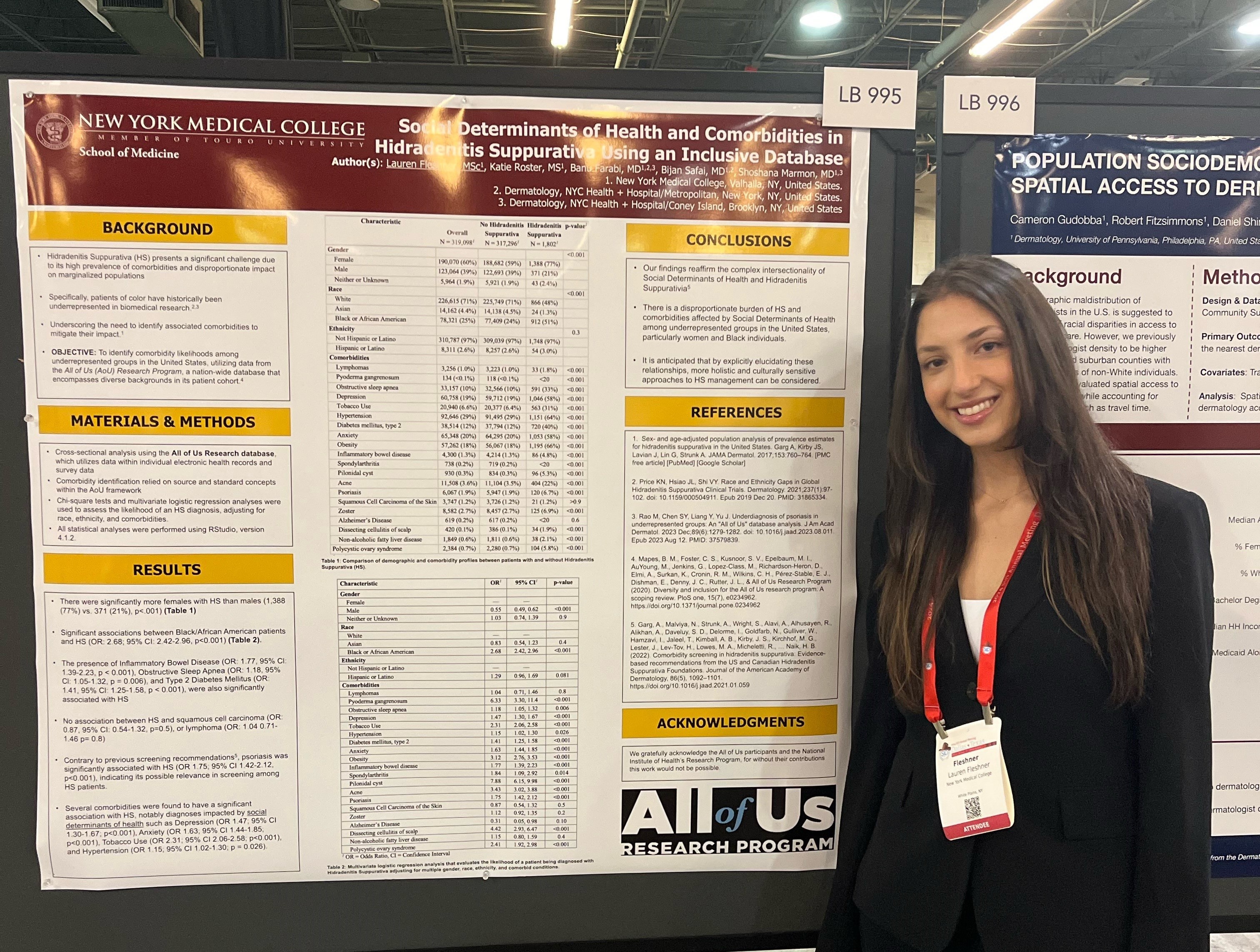
Study Addresses Hidradenitis Suppurativa’s Impact on Marginalized Populations
The Autoimmune Disease That Attacks the Hair Follicles Disproportionally Affects Females and African Americans

Hidradenitis Suppurativa (HS), a persistent and sometimes debilitating inflammatory skin condition, presents a significant health challenge due to its high prevalence of comorbidities and disproportionate impact on marginalized populations, according to a study conducted by New York Medical College (NYMC) students, faculty, and residents.
“Patients of color have historically been underrepresented in biomedical research, a fact that underscores the need to identify associated comorbidities to mitigate the impact of HS among diverse populations,” says Lauren Fleshner, M.Sc., School of Medicine Class of 2027, lead author of the study that she presented at the Society for Investigative Dermatology conference in Dallas, in May.
For the study, the NYMC researchers utilized data from the All of Us Research Program, a nationwide database that encompasses diverse backgrounds in its patient cohort.
“We found that females and African Americans were three times more likely to be afflicted with HS,” says Fleshner. “HS patients were also more likely to suffer from several comorbidities—inflammatory bowel disease, obstructive sleep apnea, type 2 diabetes mellitus, and contrary to previous screening recommendations, psoriasis.”
Comorbidities impacted by social determinants of health were also identified, including depression, anxiety, tobacco use, and hypertension.
“Our findings reaffirm the complex intersectionality of social determinants of health and HS, as well as the disproportionate burden of HS and comorbidities among underrepresented groups,” says Fleshner. “We hope that by elucidating these relationships, more holistic and culturally sensitive approaches to HS management will be considered. Physicians aiming to treat these high-risk populations should also screen for relevant comorbidities as identified in our study.”

